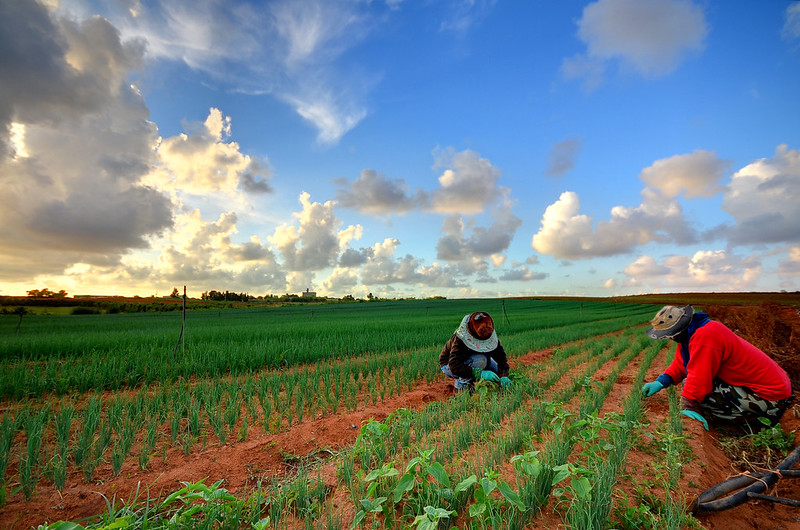
H-2A participants, sometimes called guest workers, receive a temporary visa for farmwork. Benefits also include free housing, transportation, and wages slightly above minimum wage. (Amir Appel/flickr)
As commodity prices continue to plummet and the effects of trade wars impact America's agricultural sector, some farmers are saying they can't afford increased wages for seasonal farm workers.
In a letter addressed to Senators Mitch McConnell and Chuck Schumer, the Agriculture Workforce Coalition (AWC) is asking the legislators for changes to the H-2A visa program, which farmers use to legally hire guest workers.
Despite a surge in H-2A hires in recent years-more than 240,000 H-2A visas were granted in 2018, a 21 percent increase from 2017-many farmers say they are struggling to afford the expenses of the program.
Employers are required to provide housing and travel expenses and pay the adverse effect wage, Estimates range from $1,000 to $2,000 a worker.
The Adverse Effect Wage Rate (AEWR) is an hourly rate that's slightly higher than the regional minimum wage and recalculated every year by the Department of Labor.
The 2020 AEWR announced earlier this month increased by six percent. The groups in the AWC say that means farm labor costs will increase by that amount without taking into account rapidly decreasing commodity prices and farm incomes, or the cost of other benefits provided to H-2A participants, like housing and transportation.
The largest AEWR increases are slated for states in the Corn Belt-Illinois, Indiana, and Ohio-at 10 percent.
The AWC is asking legislators to address the AEWR, and to provide guest worker program access to year-round agriculture sectors such as dairy, livestock and mushrooms.
Read More:
-
H-2A wage rates jump to 6% nationally in 2020 (
Agri-Pulse)
-
Migrant Workers Denied Food, Water On MO Farms (
Earth Eats)
-













